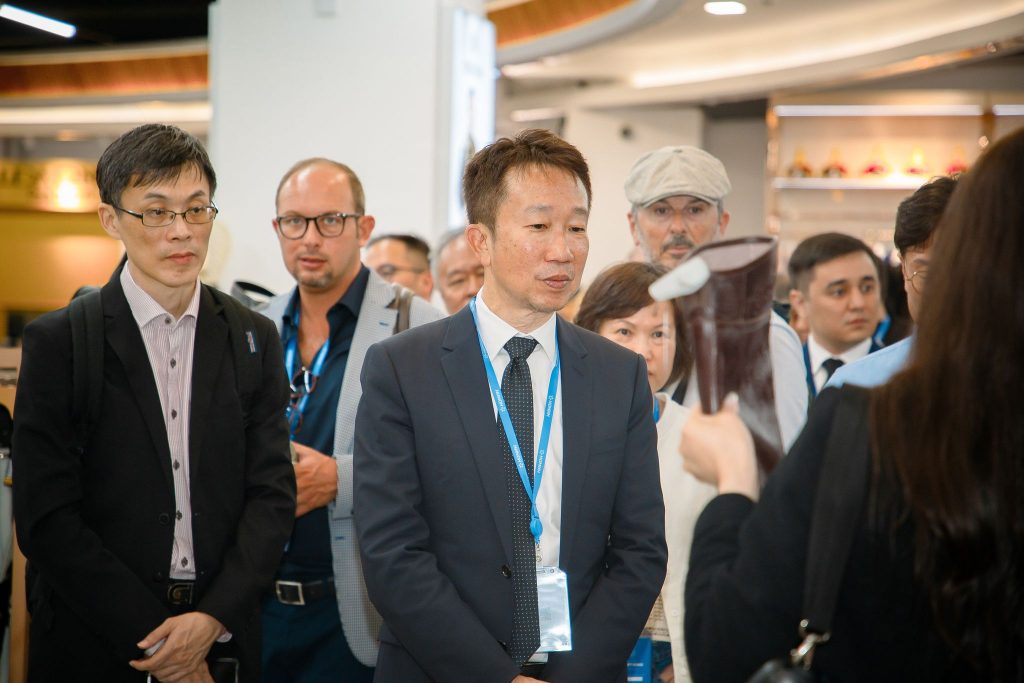Andy Leck: Practising law is a calling

“Mongolian Economy” spoke with Andy Leck, Principal and leader for the IP Tech practice group, and Managing Principal of Baker McKenzie Yangon.
– Mr. Andy, you have been working in one of the leading international law firms. Could you tell us how your career as a lawyer started? What is your advice to young lawyers?
-Practising law is a calling. Of course, when I first started as a young lawyer, I had my fair share of doubts and questions as I explored and learned the ropes of lawyering. I am still learning as I go along but if I have to summarise my advice to young lawyers, it boils down to 3 main points:
(a) Be adaptable. Two key areas where adaptability is important. First, on people management, as a young lawyer, you will inevitably have the chance to work with different seniors on the team, who may have different working styles. You will need to adapt for you to work together with the team effectively. As you gain seniority, adaptability comes into the picture once again when you have to start managing clients. It is important that you are able to observe and pick up the nuances and preferences of your clients.
Second, on technical expertise, the legal field is often reactive to commercial demands. You have to keep abreast of the changes in the market and be sensitive to client needs. In turn, you will have to evolve and ensure that you have what it takes to meet these needs. To give an example, the recent buzzword is the metaverse – a virtual interconnected 3D shared space that is envisioned for people to come together and interact with each other.
It is important for us, as lawyers, to understand these emerging trends to be able to provide meaningful advice to our clients.
(b) Be curious. As alluded to earlier, the legal field is dynamic and is affected by commercial trends to a very large extent. The work that law firms receive is becoming increasingly complex due to the advancement of technology and increased mobility across borders. As such, lawyers are expected to start wearing more hats, and be exposed to different areas of law beyond their expertise. Therefore, young lawyers need to stay curious and be open to learning new areas of law.
(c) Seek mentorship. The last point, to me, is also the most important. Over the course of my career, I was fortunate to have a few mentors who were willing to guide me in my practice. Having someone whom you can go to when you are in doubt certainly helps. In my firm, we have an internal mentorship scheme for our young lawyers, where each legal trainee will be paired up with an associate and a partner, and will learn under their guidance.
Having said that, you should never view your mentor as an answer bank – their role is not to give you answers to the legal advice but rather to offer guidance or they may ask you thought-provoking questions which will hopefully lead you to make better judgments in your decision-making process.
– You are specialized in intellectual property disputes. How is intellectual property internationally recognized, disputed, and protected nowadays?
– This question is far-reaching and it will take me some time to answer. I will just highlight that intellectual property rights are largely territorial in nature. For example, the protection granted to a trademark registered in one country does not automatically extend to other countries.
Therefore, to obtain protection in the markets of interest, companies are encouraged to register (if registrable) their intellectual property rights in each of the countries where the intellectual property rights will be used.
That said, there are international conventions (such as the Madrid Protocol) that help simplify the registration process of some intellectual property rights worldwide.
– In your opinion, what should Mongolian companies do/focus on to protect their IP when they want to go abroad? And what they should consider when they want to work with law firms?
– As alluded to earlier, intellectual property rights are largely territorial in nature. When a Mongolian company plans to venture overseas, its priority should be to identify the key markets that it wants to venture into, and then obtain the necessary registration in those countries to protect its intellectual property rights.

The suitability of law firms is intrinsically tied to the company’s business strategies and plans. For example, if a Mongolian company wants to venture into 10 different countries spread across the EU and APAC regions, an international law firm with locally-qualified lawyers in each of the 10 countries would be ideal. An international law firm that can operate fluently across different jurisdictions due to its integrated global network can bring about time and cost efficiencies for the client. With lawyers stationed on the ground, these firms may be familiar with the local cultures, have strong local contacts, and understand the state of affairs in practice in the different countries.
– As a lawyer, I think you have knowledge about the legal environment of Mongolia. In terms of foreign direct management, what Mongolia should do firsthand in order to attract FDI especially after a global pandemic?
– I have to confess that I personally do not have substantive knowledge about the legal environment. However, I have checked with one of my partners who lead our Projects Practice Group and has been involved in many deals/transactions in Mongolia. He offered a few suggestions:
(a) Improved enabling legislation – this is to attract private sector investment.
(b) Dispute resolution – this has been a positive development in Mongolia. My Projects partner recently worked on an investment deal to develop a power project. The international lenders and investors wanted offshore international arbitration but the law at the time (ie, the Energy Law) required all disputes between the developer of the project and state-owned offtaker to be resolved before the energy regulator and any party disgruntled with the decision to go to the local Mongolian courts. This was a massive bankability issue for a $1bn project. The parties lobbied hard and succeeded in getting an amendment to the existing law that allowed certain disputes to be arbitrated offshore.
(c) Ensuring credit-worthy government counterparts to contracts – this is a big commercial risk and there is very limited ability for the Government to provide guarantees.
(d) Depth of local capital market – this is very thin and obviously has an impact on capital raising and investment support.
(e) Improved corporate governance of domestic private sector – so they can be better local counterparts to international investors
– You visited Mongolia 10 years ago. A lot has changed since then, but for you what changes have been most impressive both?
– There have been so many positive and impressive changes. I will highlight only 3.
First, the infrastructure improvements have been massive, starting from the new international airport, to the roads leading into the city and the high-rise towers sprouting across the city.
Second, I had the opportunity of participating in the Naadam celebrations over 3 days. It was quite evident that the quality of life and standards of living has greatly improved. This is corroborated by the significant decrease in unemployment numbers and increase in foreign direct investment over the past years.
Third, I was the guest of Nomin’s Chairman during my recent visit to Ulaan Baatar, as Nomin was celebrating its 30th anniversary. Judging from the trade partners of Nomin, a clear takeaway was the corporate sophistication and growth of multinational trade channels.
All these developments august well for Mongolia.